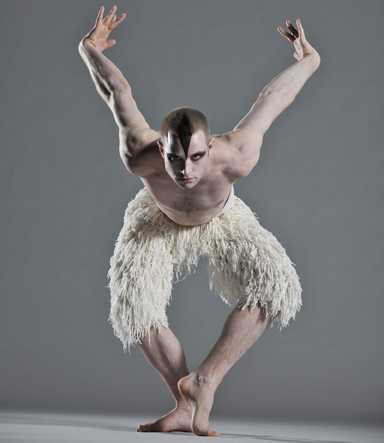Christie and Paula headed along to the opening night of Matthew Bourne’s Swan Lake. Here’s Christie’s review for The Irish Times.
Matthew Bourne’s Swan Lake represents Broadway more than classical ballet in a formula that has travelled from its debut at Sadler’s Wells Theatre in 1995 to the West End and around the world to wide acclaim.
With Tchaikovsky’s music and the cast’s firm footing in ballet training, this well-conceived and well-executed production embodies a coveted mix of art and commercial appeal, while addressing themes such as love and jealousy.
Setting aside preconceived notions of ballerinas in feathered headdresses, this story presents a Swan Lake in contemporary times where the prince (Liam Mower) could have stepped right out of the royal family. He appears distraught with lack of control over his regal life – so much so that he contemplates ending it. He flirts with a girl beneath his station, engages in passive-aggressive spars with his controlling mother, and generally shows resentment towards his princely duties. Then the swans appear.
The cadre of 14 men represents masculinity, strength, and the father figure the prince has been missing. And if the fine flock of bare chests wasn’t enough to renew the prince’s vigour, the lead swan, danced by the seductive Jonathan Ollivier, draws the prince out and into an underworld where so much power spreads across the stage it makes a rugby haka look tame.
Without being blatantly sexual, Bourne harnesses male physicality and prowess, particularly in act two. Typically a scene to showcase female swans, his second-act sequences of blood-pumping choreography channel the men’s energy and accent it with surprising bird-like tilts of the head and nods to other dance forms. The comic ballet tableau in act one and hip-hop gestures in the Dance of the Four Swans illustrate how deftly Bourne can utilise dance styles.
After the men carry such a large part of the narrative, the superb female dancing in act three is icing on the cake. Ollivier arrives in his alter-ego role, in black leather trousers and seducing the queen and every other woman on stage, sending the prince back into a tailspin of despair from which he never escapes.

